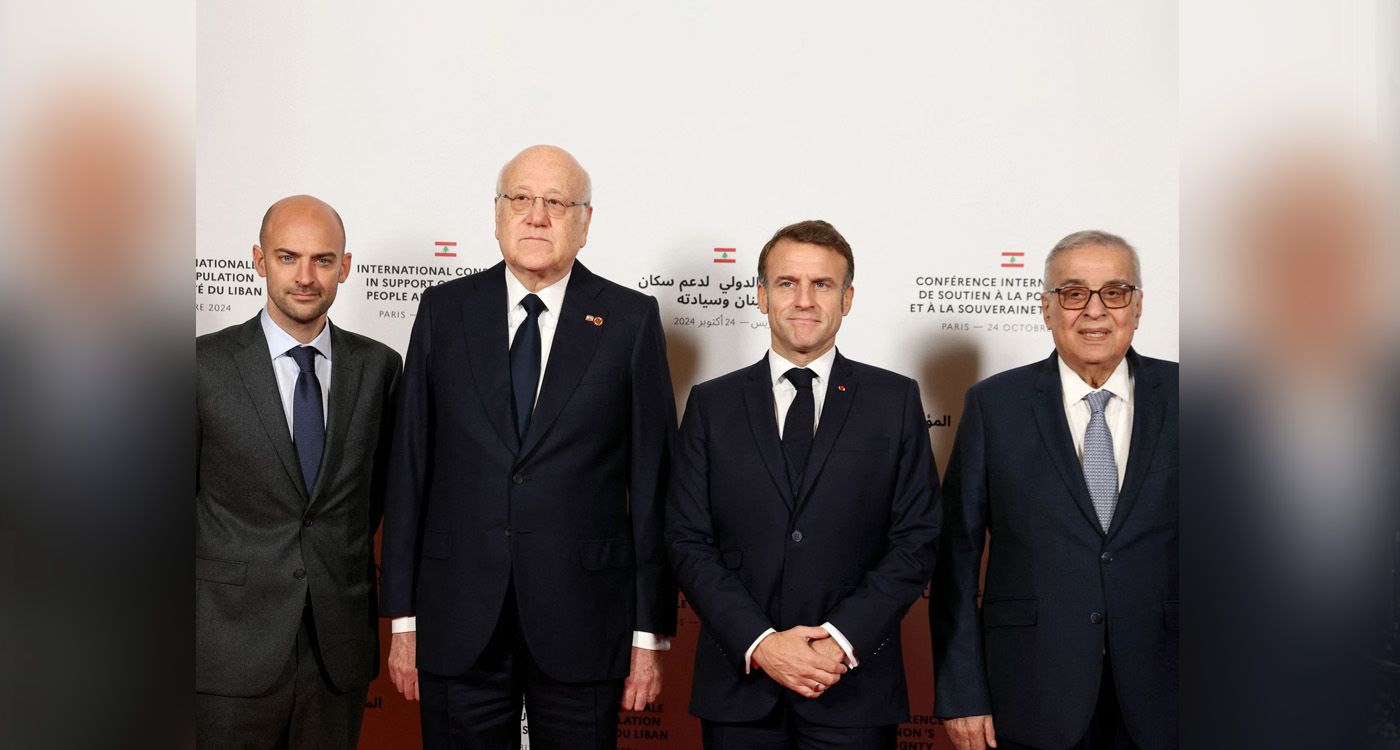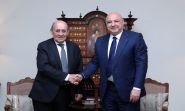
World powers are meeting in Paris on Thursday with the aim of raising at least 500 million euros in urgent humanitarian aid for Lebanon while advocating for a ceasefire.
During the conference, Caretaker Prime Minister Najib Mikati began his speech by thanking French President Emmanuel Macron for organizing the event and for the various initiatives he has personally undertaken to support Lebanon. “We are deeply grateful to you,” he stated.
Mikati outlined Lebanon's expectations from the international community, emphasizing the need for solidarity and an immediate ceasefire. “Lebanon urges the global community to support efforts to halt ongoing attacks and impose an immediate ceasefire,” he said.
He highlighted that “the war has severely impacted living conditions, increasing the need for international aid to provide essential services such as food, healthcare, shelter, and education.”
“Support is also crucial for local authorities to manage the displaced population and ensure access to basic services such as waste management, energy, and water. Additionally, Israeli attacks have caused extensive damage to infrastructure, necessitating international funding for the reconstruction of roads, schools, hospitals, and key systems like transport and power,” he added.
The Equation of Stability
Mikati affirmed that “the equation for stability is achieved through an immediate ceasefire, the full implementation of UN Security Council Resolution 1701, and the deployment of 8,000 Lebanese army personnel south of the Litani River.”
He noted that stability is also ensured by resuming diplomatic efforts to address disputes along the Blue Line and reaching an agreement that can guarantee long-term, sustainable stability in southern Lebanon.
He remarked that the maritime border agreement serves as “evidence of Lebanon's commitment to peaceful negotiations and conflict resolution.” These agreements have resolved long-standing disputes and demonstrated Lebanon's willingness to engage constructively with honest mediators. Following a ceasefire, the Lebanese government is ready to re-engage, prevent further escalation, and ensure the safety of its citizens and the sovereignty of the country, Mikati stated.
Resolution 1701 and UNIFIL
The Prime Minister assured that “United Nations Security Council Resolution 1701, in its current form, remains the cornerstone of stability and security in southern Lebanon. The full and immediate implementation of this resolution by both Lebanon and Israel would preserve Lebanon’s sovereignty and territorial integrity.”
Mikati emphasized that “the Lebanese government's commitment to recruiting additional Lebanese soldiers, in line with Resolution 1701, demonstrates a clear dedication to its implementation. However, he noted that “the successful execution of this commitment will require international support, including financial assistance, training, and technical aid to ensure the recruitment process is carried out effectively and efficiently.”
Regarding UNIFIL, the Prime Minister pointed out that “the Lebanese government has consistently shown strong support for UNIFIL and its missions, recognizing its crucial role in maintaining stability along the southern border.”
“Lebanon condemns Israeli attacks on UNIFIL and stresses the importance of international support for its mandate, calling on the global community to contribute to this vital effort,” he added.
Internal Stability
In conclusion, Mikati highlighted that “the cornerstone of internal stability in Lebanon remains the election of a president who upholds the constitution, enforces the National Pact and the Taif Agreement, and supports a new government to implement essential reforms.”
“Lebanon requires a fundamental rebuilding of its economy and institutions, along with strengthening the Lebanese Armed Forces,” he concluded.



Comments